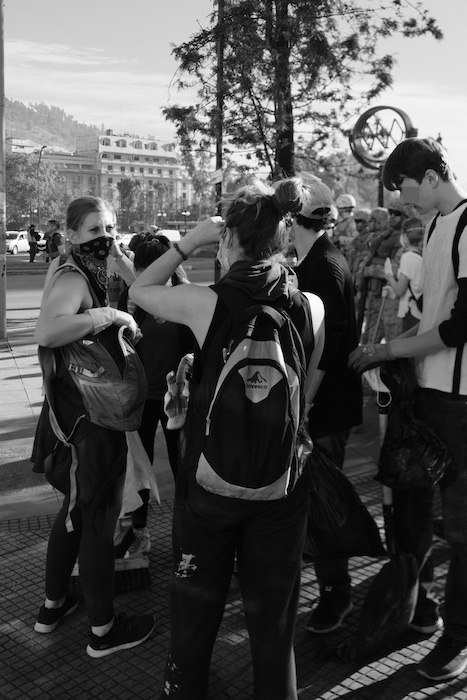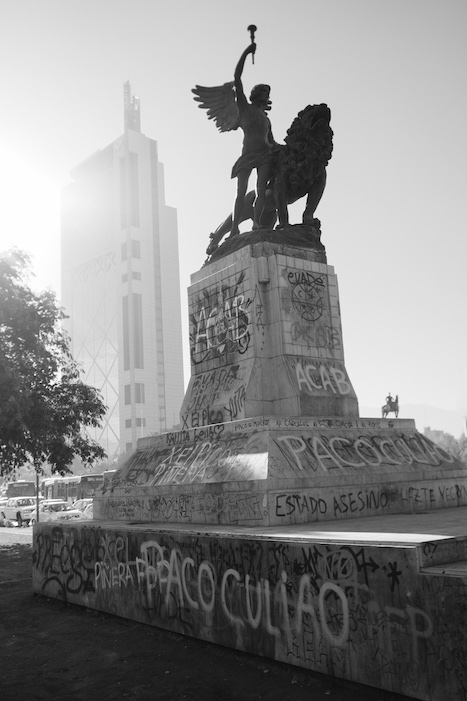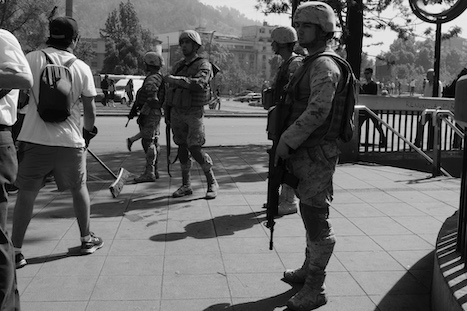Climate: intuition and compassion
Almost all of us have an intuition that we live at an absolute break point in history, from the warming of the planet to the increased severity of weather and the correspondingly large movements of people that planetary change is beginning to set in motion; that many understandings we have about ourselves will not survive the coming years, and that we are on the edge of some kind of proving ground. We intuit a threshold, a line beyond which everything about ourselves will be revealed to ourselves, and that there is an unspoken but ever-present fear we might not like what we find.
Thankfully there is a merciful parallel – that through this trial we may be forced to unearth inner resources we have previously neglected. Strangely, we find it difficult to look hard in either direction, positive or negative, because we are justly afraid of discovering how individually and collectively selfish we may be. The beautifully disturbing underlying question is: will the evolutionary identity that has enabled us to survive and prosper up to this point have the necessary qualities, imagination, compassion and measure of selflessness necessary to enable us to survive the very world we helped to create? — David Whyte*
Imagining solutions
Intuitively, linking our imagination, our inner resources, evolutionary development and the thresholds all around us makes a lot of sense. “I’m so proud we’ve woken up” one Chilean said to me as people filled the streets of Santiago recently. I believe he meant it in the compassionate and selflessness sense from David’s quote above. It’s certainly hard to be self-centered as you are repeatedly heading into tear gas streams!
These potentials seem increasingly present, linked, forefronted and exploding—we’ve seen millions of protesters cascading into the street. From Hong Kong, Haiti as well as globally on our climate emergency to name only a few.
Diverse protests emerging around the world are connected. Climate strikes by school children around the world, fare evasion in Chile, roadblocks in Lebanon and Extinction Rebellion disruptions in Brisbane are all part of the same phenomenon. Many people in many places have had enough of a system that destroys nature and perpetuates inequality — Chris Riedy
There are clear connections between the social and equity protests and climate drivers. Maisa Rojas, the scientific coordinator for the COP25 climate summit and director of Chile’s Centre for Climate and Resilience Research, recently connected these pieces too:
We know that climate change acts as an amplifier of social inequality, disproportionately affecting the most vulnerable… In Chile, just a month before the social crisis exploded, we saw the first internal displacement as a result of the climate crisis… Only if social demands are met will ambitious and rapid climate action be feasible. The good news is that addressing social issues alongside the climate crisis has the potential to generate powerful, long-lasting solutions.
All of this asks us to surface some often hidden qualities. In addition to imagination, compassion and selflessness it’s confronting too. Our world has very real power dynamics. It’s the way it is because it suits us, or enough of us, for it to be this way:
Actively engaging a transforming world, even if we are not bolstered by a sense of certainty or moral righteousness, confronts us with power. The powers that be, and our own, as well as any lack of power we may feel — Susi Moser
That, not surprisingly, makes change hard. It’s calling for a new level of engagement and, particularly with our global interconnectedness and interdependencies, it seems clear that a significant part of that new level is around rediscovering and updating our collective natures.
Perhaps the missing piece is our interconnectedness. I have recently been inspired by the work of the People’s Supper… At the foundation… is the belief that “Relationships move at the speed of trust; social change moves at the speed of relationships” — Julianna Gwiszcz
There are significant points of leverage. In our physical world, as Paul Gilding put it today, “across energy, transport and food countless climate solutions are not just available but are broadly superior… cheaper or at least price competitive“. He’s highlighting a step shift and near future tipping point. Our minds need to match this too:
The idea is that to begin to transform towards a better world, we all need to shift our framing—our cultural mythologies—to understand the world in a new way. Today’s dominant mythologies tend to be economic, and around individualism, growth at all costs, and purportedly free markets — Sandra Waddock
That’s where we reach for stories and imagination. As David puts it poetry is “creating the physical experience of this frontier… the art to which I have dedicated my life“.

Above: Street cleaning gang, Santiago morning. After noon and at night the protests flare. In the morning people take to the streets to voluntarily clean up the debris.
Below: Plaza Italia in the morning. Epicentre of the Santiago protests. Bottom: clean-up near the Plaza.


Resources
Posts and links
David Whyte’s quotes are from his letter, A deep but dazzling darkness, here>
Maisa Rojas’s quotes are from her article: Global heating plus inequality is a recipe for chaos—just look at Chile. It is here>
Chris Riedy’s quote is from The stew pot revolution here>. It originally appeared on Planetcentric.
Susi Moser’s quote is from Storms here>. It originally appeared in the Sustainable Development Goals (SDG) Transformations Forum.
Julianna Gwiszcz’s quote is from Confronting fear here>
Paul Gilding’s quote is in Climate Contagion—2020 to 2025 here>
Sandra Waddock’s quote is in Future stories here>. Original on SDG Transformations Forum.
Feature photo: October 25 via @chiledespert0. Clean ups and Plaza Italia by Festina Lentívaldi, (be) Benevolution. Reuse: Creative Commons BY-NC 3.0 US.
Chile December 6
via @chiledespert0
Subscribe
Get the newsletter (story summary).
Recent posts
Coming home
We belong to and are of the Earth but we bypass our sense of belonging. I missed this leaving home and my story mirrors our larger, human-wide journey. What do I need to come home?
Soulprint: Peak nature
Extraordinary: a paradigm shift by 147 governments and the UN endorsing “humans and nature are spiritually connected.” Invitation: to build on this for yourself and all of us.
We are in a portal
I’ve a deep knowing: we humans have shifted. That’s disorienting so here’s 3 handrails to help: this is sourced in bliss; lubricated by peak oil; agreed by UN & 147 nations; and, all with dragonflies!


0 Comments